Imagine a world where the Goths, a Germanic people, were successfully integrated into the Roman Empire in the 4th century. This alternate timeline could have reshaped European history in significant ways.
How would this integration have changed the course of events?
If the Roman Empire had harnessed the military skills and cultural richness of the Goths, it may have strengthened its defenses and experienced a flourishing exchange of ideas.
Historical Background
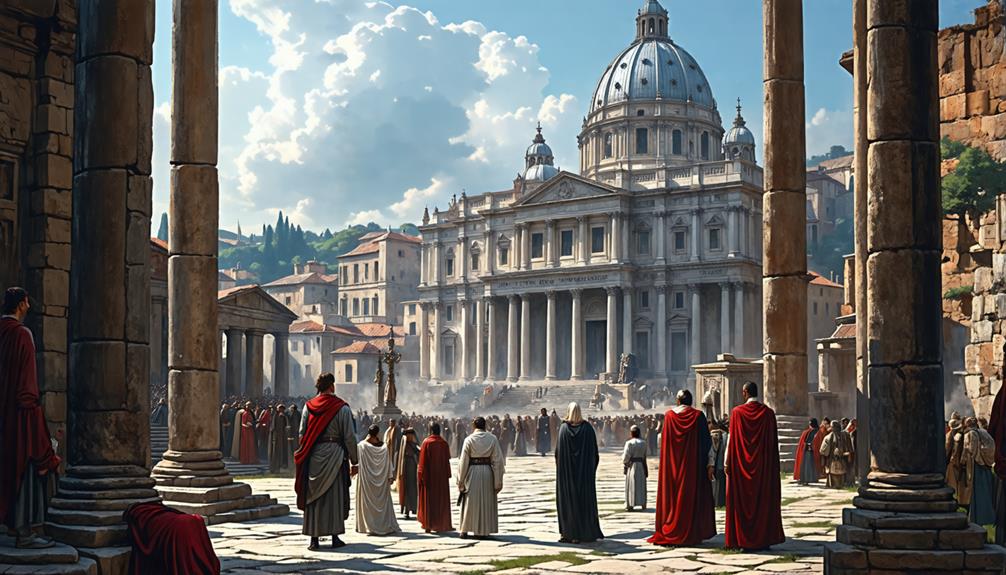
In an alternate history scenario, the Goths could have chosen not to split into the Visigoths and Ostrogoths, instead remaining a unified people. This may have led to a stronger Gothic presence in Europe, potentially altering the balance of power with the Roman Empire.
One theory is that a united Gothic nation might've been able to conquer and absorb the Western Roman Empire entirely. It's also possible that the Goths could have integrated more peacefully, becoming a dominant political and cultural force within the empire, shaping its future development.
If the Goths hadn't migrated during this time period, a similar scenario might've occurred with another Germanic tribe at a later date. The Franks or the Vandals, for example, could have taken on the role that the Goths played in this alternate timeline, leading to a different set of historical outcomes.
Gothic Assimilation
Had the Goths remained unified, some historians theorize their assimilation into the Roman Empire could have played out quite differently. One possibility is that Gothic influence on Roman politics and military affairs would have been more substantial. Additionally, Gothic culture and traditions may have been better preserved within the Empire.
Another theory is that successful Gothic integration could have potentially strengthened Rome, creating a more diverse and resilient empire. It's also possible that a Gothic dynasty could have emerged to rule the Empire.
While the Goths never achieved this level of unification and influence, the Ostrogoths under Theodoric the Great did establish a kingdom in Italy in the late 5th century AD, showing that Germanic peoples were capable of ruling former Roman territories.
Military Contributions
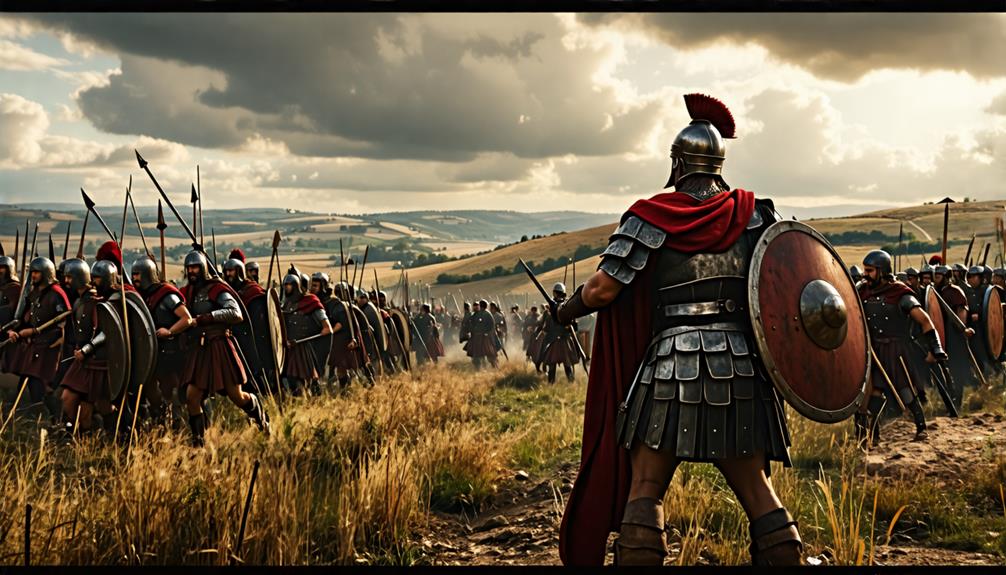
In an alternate history, the successful assimilation of the Goths into the Roman Empire might've led to a more stable and long-lasting civilization.
One theory suggests that the Goths' military skills, combined with their integration into Roman society, could have fortified the empire's defenses and campaigns. It's possible that this scenario might've played out differently at a later date, with another group taking on a similar role.
While the outcome is uncertain, such a fusion of cultures and military might could have meant significant changes to the course of history.
The Roman Empire may have endured longer or taken a different path altogether. Ultimately, the full implications of this hypothetical assimilation are open to interpretation and speculation.
Cultural Exchange
In an alternate history, a rich cultural exchange between the Goths and Romans could have transformed both societies in profound ways. Adoption of Gothic clothing styles and jewelry by Romans, spread of Arian Christianity among the empire's populace, and introduction of Gothic words into Latin are all plausible outcomes that would have reshaped Roman culture.
These changes may have altered the trajectory of the empire and Western Europe as a whole in unpredictable ways. Some scholars theorize that greater Gothic influence could have accelerated the empire's decentralization and shift toward feudalism. Others speculate that it may have provided a unifying cultural force that helped preserve imperial institutions.
Interestingly, some elements of this scenario did play out centuries later as Germanic peoples like the Franks and Visigoths settled in former Roman territories. They too adopted aspects of Roman culture while introducing their own, creating new cultural syntheses that shaped the medieval world.
Economic Impact
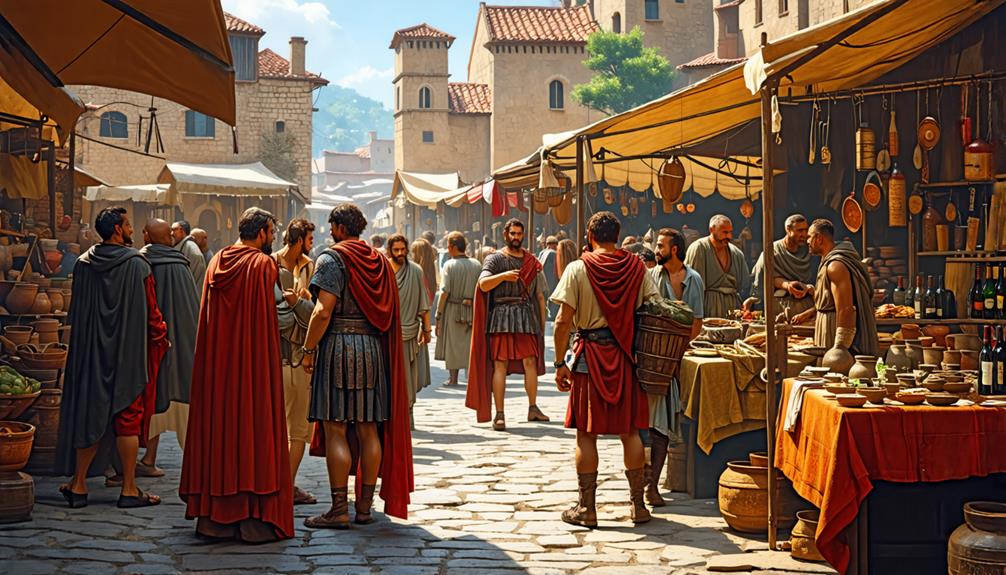
The successful integration of the Goths into the Roman Empire could have led to various economic outcomes. One theory is that their skills and labor might've bolstered production and trade, while their assimilation would have reduced military spending.
However, it's also possible that cultural differences and social tensions would have hampered economic growth.
Interestingly, a similar scenario did occur centuries later when Germanic tribes like the Franks and Visigoths established kingdoms within the former Western Roman Empire. These kingdoms blended Roman and Germanic elements, though the long-term economic impact varied by region.
Political Influence
In an alternate timeline where Goths gained significant political influence in Rome, the empire would have been transformed. One theory is that Goths holding key positions in the Senate and military could have strengthened Rome's borders and diversified its leadership.
However, it's also possible that their influence on laws and policies to benefit their people might've caused internal strife. Alliances formed with other Germanic tribes could have either bolstered Rome's defenses or led to power struggles within the empire.
While some historians believe this integration could have prevented Rome's eventual decline and fall, others argue it may have accelerated it. Centuries later, the Byzantine Empire did incorporate Gothic soldiers and leaders into its ranks, but by then, the Western Roman Empire had already fallen.
Lasting Legacy
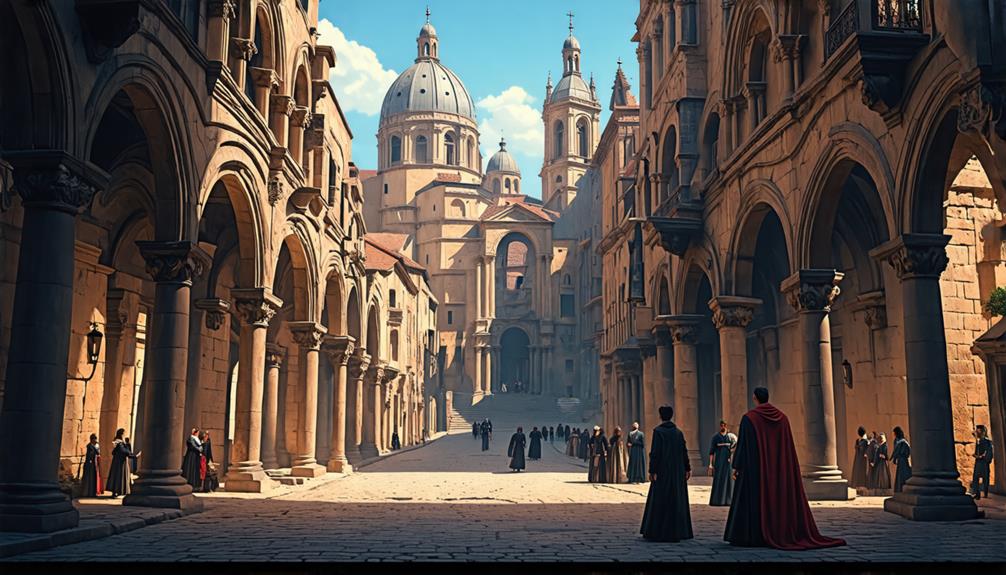
In an alternative history scenario where the Goths had a more significant political influence in Rome, their cultural impact on the empire and Europe could have been even more pronounced.
One theory is that Gothic art and architecture, with its distinctive pointed arches and intricate designs, might've become the dominant style across the continent much earlier.
Additionally, the Gothic language could have had a greater influence on the development of modern European languages, with more words having Gothic roots.
It's possible that if the Goths hadn't achieved this level of influence, another group might've filled a similar role at a later date.
However, the specific cultural and linguistic changes would likely have been different, depending on the unique characteristics of that group.
Alternate Timeline
In an alternate timeline where the Goths successfully overthrew the Western Roman Empire, several outcomes are possible. One theory is that a Gothic dynasty could have risen, blending elements of Roman and Germanic cultures into a new powerful kingdom. This may have meant significant changes to European history, culture, languages, and borders.
It's worth noting that while the Goths didn't ultimately overthrow Rome, other Germanic tribes like the Franks and Lombards did establish lasting kingdoms in former Roman territories at later dates.
Conclusion
You've explored a fascinating theory that envisions a transformed Europe.
Successful Gothic integration into Rome's empire could've reshaped the continent's trajectory, forging a resilient hybrid civilization.
Enhanced military prowess, vibrant cultural fusion, and political evolution might've birthed a new era.
It's a tantalizing alternate history that invites us to ponder the profound impact of assimilation on a society's fate.
Though speculative, this analysis illuminates the intricate web of factors that shape civilizations.
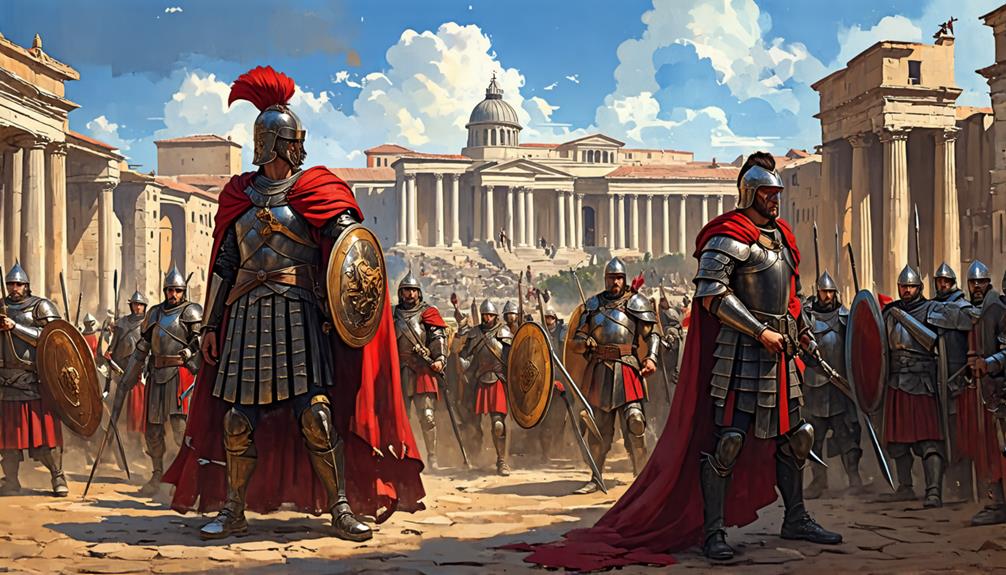
Leave a Reply